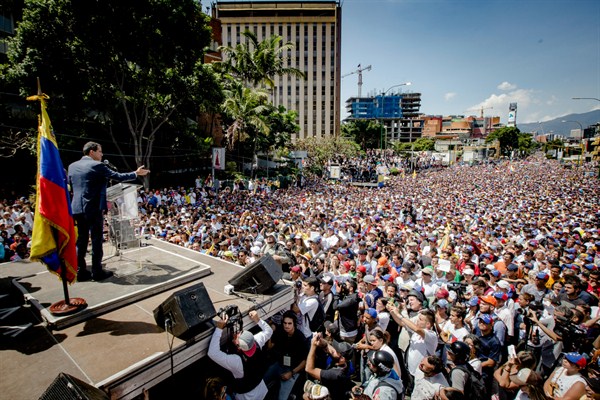The scale of the humanitarian disaster in Venezuela is almost inconceivable. Despite the world’s largest proven oil reserves, the economy barely functions. People struggle just to survive. Store shelves are nearly empty of food, medicine and other necessities. The few goods available are out of reach for most people because of hyperinflation that the International Monetary Fund estimates reached a shocking 1 million percent in 2018. An estimated 3 million Venezuelans have already fled to neighboring countries, and more will likely join them.
Last fall, the Pharmaceutical Federation of Venezuela estimated that only around 20 percent of needed medicines were available; the Medical Federation reported that around one-third of Venezuela’s physicians had left the country. The death rate for children under the age of five is similar to that in war-torn Syria, and more than one in 10 young children suffer from acute malnutrition, which can have lifelong consequences in terms of stunted physical and mental development.
This was the backdrop for the speaker of Venezuela’s National Assembly, Juan Guaido, to declare himself interim president last month, as Nicolas Maduro was sworn in before his handpicked Supreme Court for a second, disputed presidential term. Supported by popular demonstrations, and a growing number of countries in the region and beyond, including the United States, Guaido is trying to convince the Venezuelan security forces that Maduro must go.

